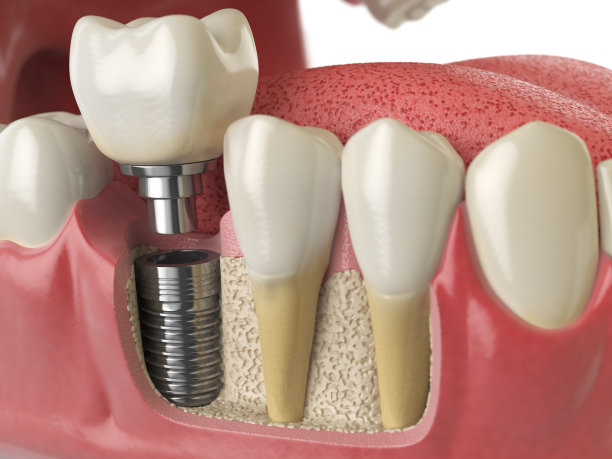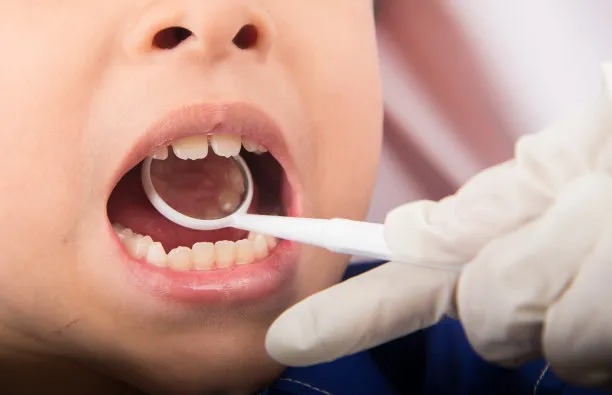Summary: Dental implantation is a vital procedure for restoring oral health and functionality, yet it demands meticulous attention to detail for optimal outcomes. This article outlines essential guidelines to ensure the safety and success of dental implant procedures. Factors such as patient selection, surgical technique, post-operative care, and ongoing maintenance are crucial for effective implants and recuperation. By adhering to these guidelines, individuals can enhance their chances of a successful dental implant experience, leading to improved long-term oral health and overall well-being.
1. Importance of Patient Selection Criteria

Effective dental implantation begins with a comprehensive evaluation of the patient. The dentist must thoroughly assess the patients medical history, oral health, and specific dental needs. Conditions such as uncontrolled diabetes, autoimmune disorders, and significant bone loss can affect the success of the implant. For instance, patients with chronic illnesses should ideally have their conditions stabilized before considering surgery.
Furthermore, the patients lifestyle choices, including smoking and alcohol consumption, should be examined as they can profoundly affect healing and success rates. Smokers, in particular, are more susceptible to complications post-surgery. Therefore, educating patients about the importance of lifestyle changes before the procedure is key to ensuring better outcomes.
Ultimately, a well-informed and medically suitable patient base significantly contributes to the overall success and safety of the dental implantation process. Such assessments will help the dental team devise tailored treatment plans that align with each patients unique needs.
2. Surgical Technique and Precision
The surgical technique involved in dental implantation is crucial for a successful outcome. Surgeons must employ precision and adhere to the latest protocols regarding site preparation, implant placement, and stability. The use of advanced imaging technologies can guide the dentist in selecting the optimal locations for implant placement, thereby minimizing potential complications.
Moreover, the choice of implant material and design can influence the procedures success. Dentists must choose high-quality materials that promote osseointegration鈥攖he process by which the implant integrates with the jawbone. Following evidence-based guidelines for the surgical process also reduces the risks associated with the procedure.
Post-operative care is another critical aspect of the surgical technique. Proper instructions regarding care, follow-ups, and the management of complications are essential for ensuring a smooth recovery. Ensuring a sterile environment and employing meticulous techniques throughout the procedure further enhance safety and success rates.
3. Importance of Post-Operative Care
The post-operative phase is crucial for achieving optimal results following dental implantation. At this stage, patients must adhere to specific guidelines set by their dental professionals to support healing. This includes following prescribed medications, such as antibiotics and pain relievers, to mitigate discomfort and prevent infection.
Dietary modifications are also advised during the healing process. Patients should avoid hard or chewy foods that may disrupt the implant site. Instead, a diet consisting of soft foods is recommended until the dental implant has adequately integrated with the jawbone. These measures significantly prevent complications during recovery.
Regular follow-up appointments are essential to monitor the healing process, ensuring that the surgical site is recovering as expected. Any signs of swelling, fever, or persistent pain should be promptly reported to the dental professional, as these may indicate potential complications. Timely intervention in such cases can save the implant and enhance long-term success.
4. Ongoing Maintenance and Oral Hygiene
Once the implant has successfully integrated, ongoing maintenance is vital for its longevity. Patients should understand that dental implants require the same level of care as natural teeth, including regular brushing, flossing, and dental check-ups. A thorough oral hygiene regimen not only keeps the surrounding gums healthy but also reduces the risk of peri-implantitis, a condition that can jeopardize the implant.
Patients should also schedule regular check-ups with their dental care provider for professional cleaning. These visits allow for early identification of any potential issues that may affect the implants integrity over time. Additionally, dentists can provide tailored advice on how to maintain oral hygiene specific to the patients situation.
Furthermore, lifestyle choices continue to play a role in maintaining implant health. Continuing to avoid smoking and excessive alcohol can significantly enhance the longevity of dental implants, ensuring they serve their purpose for years to come. Commitment to these practices fosters optimal oral health and enhances the overall success of dental implantation procedures.
Summary:
In conclusion, a comprehensive understanding of the essential guidelines surrounding dental implantation is crucial for ensuring safety and success. Patient selection, meticulous surgical techniques, diligent post-operative care, and ongoing maintenance all play pivotal roles in achieving optimal oral health and recovery. By prioritizing these factors, individuals can navigate their dental implantation journey with confidence, significantly enhancing their oral health outcomes.
This article is compiled by Vickong Dental and the content is for reference only
Vickong Dental
Vickong Dental is a large medical group established in Hong Kong in 2008 by professors from well-known medical universities in Guangdong and Hong Kong, as well as medical doctors from key national '985' universities (including Master's supervisors and senior professors). The chain of branches brings together expert dentists with PhDs and Master's degrees from Hong Kong and Mainland China, committed to providing high-quality dental treatment.
"Vickong Dental Practices the University Motto of 'Healing and Serving Society,' with a Stable Operation for Sixteen Years. It Has Been honored with Hong Kong Enterprise Leaders's Choice,' and is a Global Trusted Implant Center for the Nobel Implant System. Recommended by Hong Kong Metro Broadcast and Guangdong Television, it Serves Customers from Over Thirty Countries and Regions, Gaining the Trust and Favor of Citizens from the Guangdong-Hong Kong-Macau Greater Bay Area and Surrounding Cities.

Thousands of customers' unanimous praise
The most recognized and highly recommended dental service by customers in the Guangdong-Hong Kong-Macau Greater Bay Area
We Ensure You Receive Detailed Care and Attention Here
Hong Kong standards, Shenzhen prices, Your Trusted English-speaking dentists

Vickong Dental Medical-Grade Instrument Disinfection Process
Vickong Dental Medical-Grade Instrument Disinfection Process

Vickong Dental Chain: A Warm and Comfortable Environment for Treatment






Appointment Hours

Q&A
Why choose Vickong Dental?
Vickong Dental practices the university motto 「Medicine to Benefit Society」, with each branch bringing together highly qualified dentists with doctoral and master’s degrees from Hong Kong and the Mainland, and has maintained seventeen years of steady operation。Recipient of 「2024 Hong Kong Enterprise Leaders Brand」, 「2025 Hong Kong Enterprise Leaders Brand」, a Nobel Biocare Global Trusted Implant Center, and a brand recommended by Metro Radio Hong Kong and Guangdong TV。
To date, we have served customers from more than thirty countries and regions,earning exceptionally high word-of-mouth recognition and trusted recommendations from residents across the Guangdong-Hong Kong-Macao Greater Bay Area and surrounding cities
We have eight major branches in Zhuhai、Shenzhen,and a consultation and service assurance center in Hong Kong,so you can book a free consultation at any time for any questions,which is very reassuring.
If I do not accept the quotation after the CT scan, will I be charged??
No! As long as the actual treatment has not started, you will not be charged any fees.
Will there be any additional charges during the treatment process?
No, there won’t be any additional charges. Before treatment begins, we will clearly explain the treatment plan and its corresponding fees. Only after the patient agrees and signs the consent form will we proceed with the dental service.
Can I pay in Hong Kong dollars?
Yes. Vickong Dental accepts payment in Hong Kong dollars. The amount will be converted based on the exchange rate of the day, and the applicable rate will be clearly communicated to you in advance.
Can I reschedule my appointment at any time?
Yes. Please contact us via **WeChat** or **WhatsApp** as early as possible, providing your original appointment time and details, along with your preferred new date and time slot for rescheduling.













